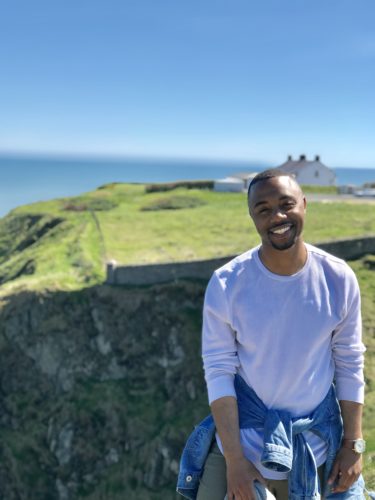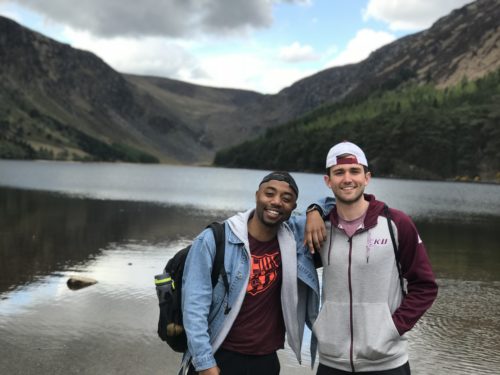
It is not lost on me that my 8-month experience in Dublin has largely been shaped by being the only African-American Mitchell Scholar this year and in my course at Trinity. That compounded with the majority white population in Ireland only made that fact – albeit obvious – even more non-ignorable. However, my reality here has pleasantly surprised me in a way that I will never forget.
I can remember first receiving the Mitchell and informing my parents of the wondrous opportunity. I was met with bewilderment and pause as my parents tried to understand what the Irish could possibly teach me about race – it is interesting how the fight for racial equity is inextricably linked solely to the African-American plight. They, like many others, made the common mistake of seeing Ireland through the lens of its colonialist and degraded history and not as an equal to their nearby neighbors, equipped to educate and influence.
As I approach the end of my time here, it is funny the things that come back to memory. I am reminded of the privilege it has been to live abroad in Ireland. I can recall sitting in a Dublin wing restaurant waiting to order with a friend. In the background carried the muffled sounds of Drake, J. Cole, and Kendrick Lamar. Customers were blithely unaware and undisturbed; it was beautiful. I cannot remember a time where such a clash of cultures was ever unnoticed in the US. I will miss that.
Countless times in class a certain fascination with the US civil rights movement arose. For a country whose own fight for independence stoked its embers from the fight for racial equality in the States, a special relationship exists between African-Americans and the Irish that is storied. In my research, I stumbled upon an unpublicized fact: Before Frederick Douglass became a renown abolitionist, he found comradery here in Dublin with Daniel O’Connell – the Irish liberator who was a political leader in the first half of the 19thcentury. President Obama relished in this same fact during his Irish address in 2012. And to be honest, being a pseudo-expatriate has only increased what was already a distinct pride I had in being African-American – our struggle is famous not just for its success but for its resilience. I will miss that.
My last intracontinental trip was to Geneva, Switzerland, increasing my total number of visited countries to fifteen. After that, I swore to no further travel and to spend my last month and a half in Dublin to deepen my experience – a great decision in retrospect. Classes end at Trinity unusually early in April and students are then free to study and write their respective dissertations. I have an incredible wealth of unstructured time to read, pontificate, analyze, rest, socialize, and repeat. Every day recently is filled with exploring sociological journals/books related to police brutality, white policing, social movement effectiveness, stereotypes, methodological queries, South Carolinian history, etc. I will definitely miss that.
I define amazing years by towering highs and ghastly lows. This year meets that criteria. From the joys of traveling with fellow Scholars to the anxieties of figuring out next steps, this year, ironically, has been the most restful year of my life. 
I am eternally grateful and will definitely be returning to this spiritual land. I have made lifelong Irish friends, and Dublin is yet another home. I cannot thank the Mitchell program enough for providing this needed outlet. Nevertheless, in the words of Chris Cuomo, “Let’s get after it” – however ‘it’ may be axiomatically outside my own control. Slainte.
